Shorenstein APARC Celebrates 40 Years of Research, Education, and Outreach
Shorenstein APARC Celebrates 40 Years of Research, Education, and Outreach
APARC commemorated its 40th anniversary with a two-day conference, “Asia in 2030, APARC@40.” At the event, which concluded the Center’s six-part anniversary series, speakers recognized the accomplishments of the past four decades and examined key forces affecting Asia’s present and shaping its future.
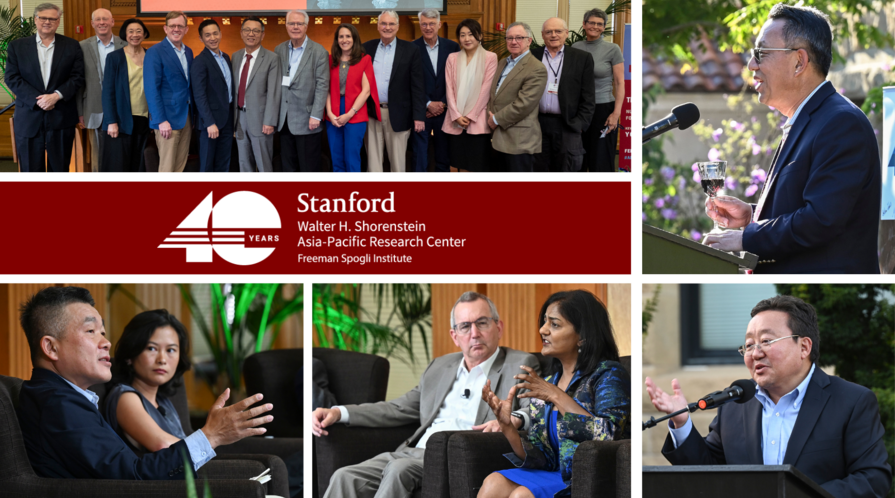
Since its inception in 1983, the Shorenstein Asia-Pacific Research Center (APARC) has fostered a collaborative community of interdisciplinary scholars and practitioners who gather to address the most pressing social and geopolitical topics through research, education, and policy outreach. Over the years, the Center’s programs and initiatives have brought together Asia scholars and seasoned specialists dedicated to studying Asia’s unprecedented demographic, political, and social changes, the dynamics of great power competition, the pathways to equitable health systems, and more. The resultant publications, dialogues, and partnerships have informed and fostered lasting bonds among stakeholders in the United States, the Asia-Pacific region, and beyond.
On May 17 and 18, the Center celebrated 40 years of activity with a two-day conference, Asia in 2030: APARC@40, which marked the culmination of a special event series that highlighted aspects of the Center’s core areas of expertise, examined Asia’s transformation over the past four decades and considered the forces shaping the region’s future. Stanford scholars, Center alumni, and esteemed guests were among those gathered to reflect on the Center’s accomplishments and to consider the issues that will define the coming years of Asia scholarship.
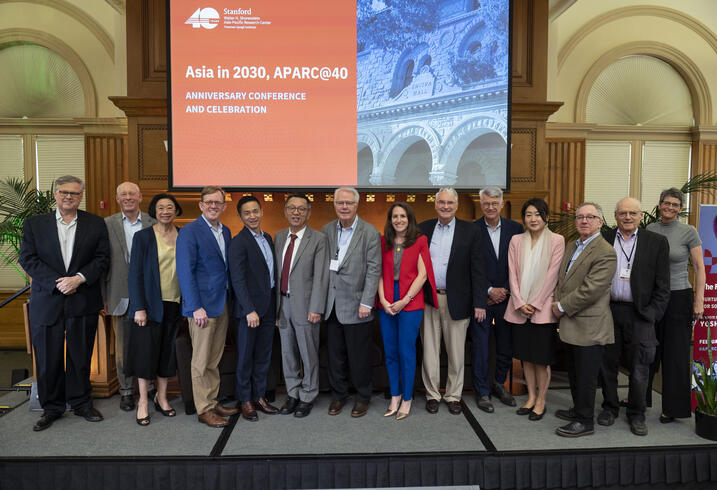
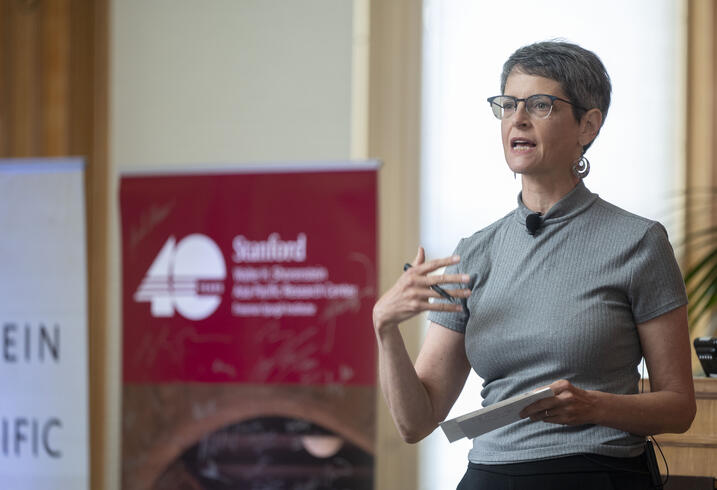
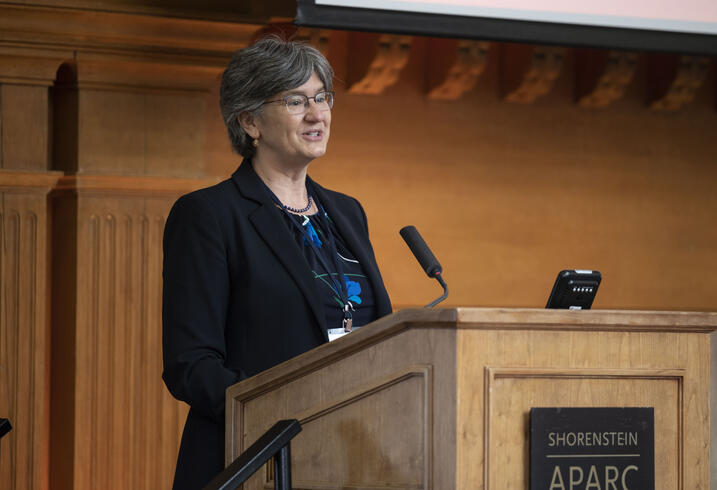
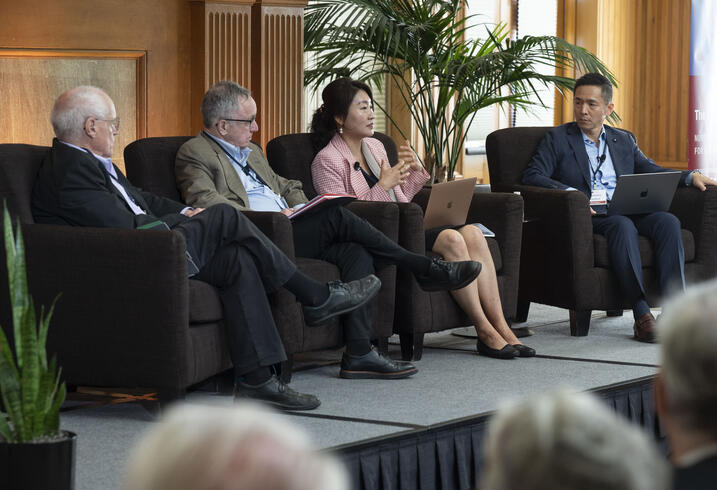
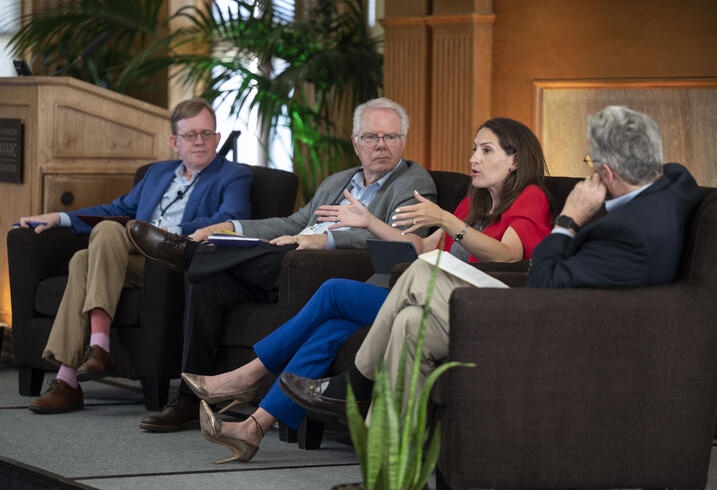
The center kicked off its celebrations with remarks by APARC Director Gi-Wook Shin, Vice Provost and Dean of Research Kathryn Ann “Kam” Moler, Tad and Dianne Taube Director of the Hoover Institution Condoleezza Rice, and Co-Director and Senior Fellow at the Center for International Security and Cooperation (CISAC) Scott D. Sagan. “Our work has never been more pertinent,” said Shin. “There is still a tremendous gap between the strategic importance of Asia — the largest, most populous, and arguably most diverse region of the world — and how the United States engages with and adapts to Asian nations’ interests, views, and goals. With the post-Cold War international order increasingly under strain and developments in the Asia-Pacific playing a central role in shaping the next era of history, there is an urgent need to advance a nuanced understanding of the forces driving these shifts and ways to respond to them — and APARC was established to do just that.”
Moler pointed out that one of APARC’s unique aspects is the diversity of its research portfolio which covers areas from innovation and entrepreneurship to governance and political movements, and from Asia-Pacific security and cooperation to comparative health economics and societal change. “The array of panels at today’s anniversary conference reflects this breadth of scope,” she noted. Rice recounted memories from her time as a young scholar during the Center’s early days in Galvez House, its original campus home, and Sagan shared reflections on collaborative projects between APARC and CISAC.
The first panel, “The Future of Diplomacy,” brought together former APARC Pantech Fellow John Everard, former Ambassador to Belarus, Uruguay, and North Korea for the United Kingdom; APARC China Policy Fellow Laura Stone, a career member of the U.S. Senior Foreign Service; and APARC Visiting Scholar Michael Beeman, former Assistant U.S. Trade Representative for Japan, Korea, and APEC at the Office of the U.S. Trade Representative. The panelists analyzed current trends in diplomacy and envisioned how the international relations of the next decade might unfold.
The next panel, “The Future of Asian Studies,” featured Donald K. Emmerson, Director of the Southeast Asia Program at Shorenstein APARC; UC Berkeley Professor of Sociology Thomas B. Gold; and Jisoo Kim, Korea Foundation Associate Professor of History, International Affairs, and East Asian Languages and Literatures at The George Washington University. The panelists considered challenges and new directions for the field of Asian studies, remarking upon the need for increased intellectual diversity and continued partnership with higher education institutions in Asia.
The annual Oksenberg Panel concluded the first day of the conference with a focus on the future of U.S.-China relations. Following introductory remarks by China Program Director Jean C. Oi, panelists M. Taylor Fravel, the Arthur and Ruth Sloan Professor of Political Science and Director at MIT’s Security Studies Program, David Michael Lampton, professor emeritus at John Hopkins University and former Oksenberg-Rohlen Fellow at Shorenstein APARC, and Center Fellow Oriana Skylar Mastro offered their measured assessments of what the future of bilateral relations might look like given the current tensions between the two powers.
Japan Program Director and APARC Deputy Director Kiyoteru Tsutsui welcomed participants and audience members to the second day of the conference, which featured lively conversations on issues ranging from democracy’s decline to the promise and peril of artificial intelligence.
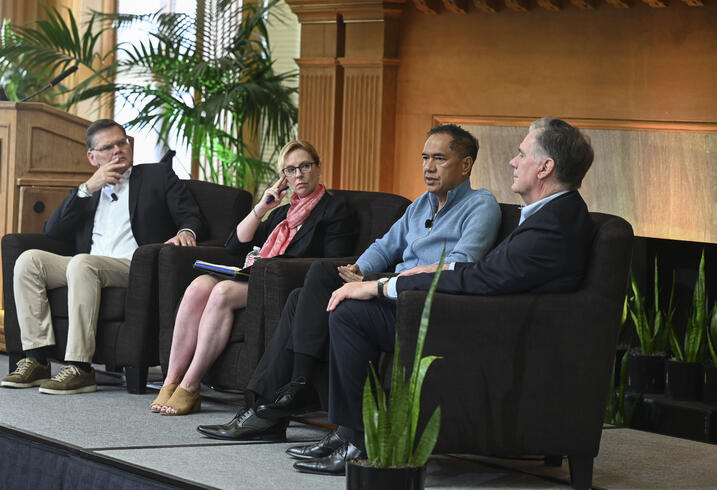
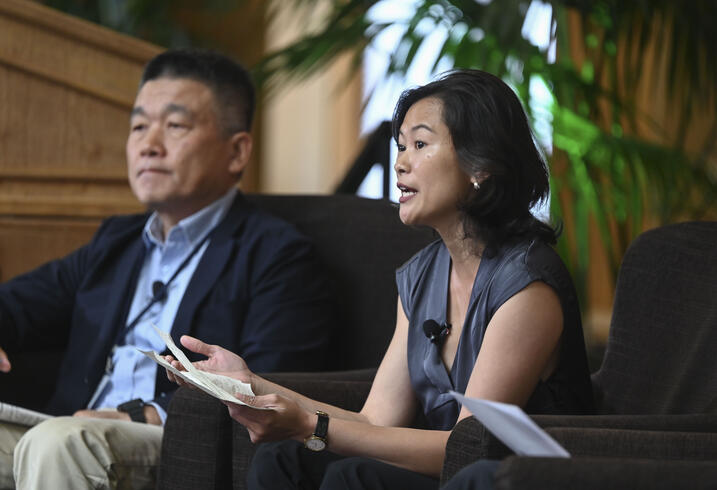
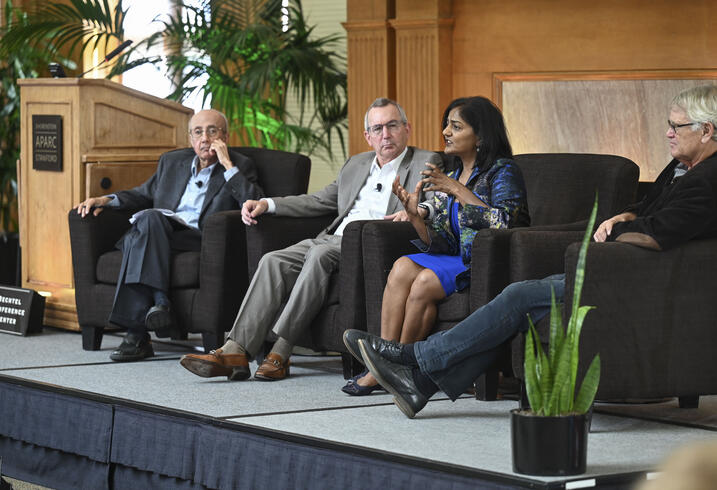
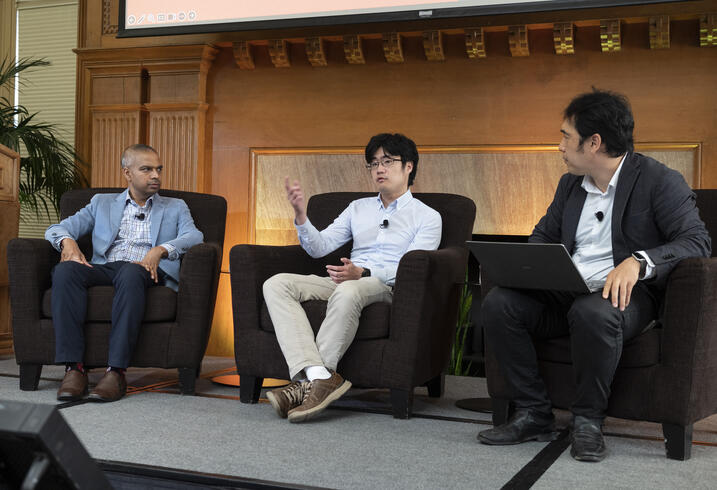
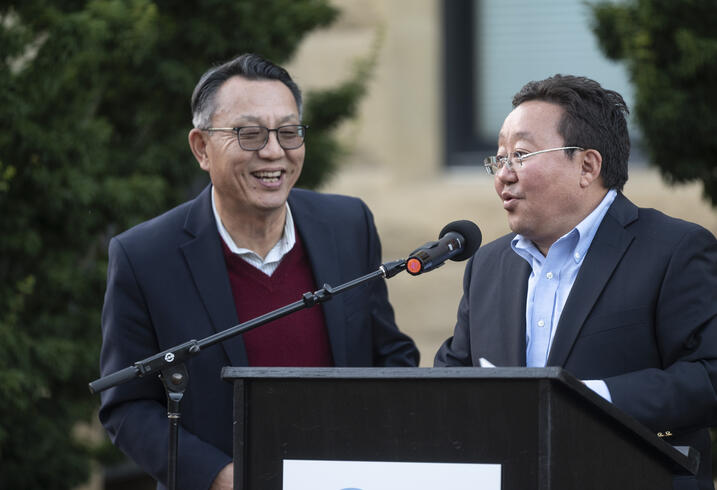
The first panel, “The Future of Governance,” gathered Curtis J. Milhaupt, the William F. Baxter-Visa International Professor of Law at Stanford University and APARC affiliate faculty; Kathryn Stoner, The Mosbacher Director of the Center on Democracy, Development, and the Rule of Law; and Gita Wirjawan, former Minister of Trade of Indonesia and currently a visiting scholar at APARC.
The next panel, “The Future of Journalism” assembled acclaimed journalists Sang-Hun Choe, the Seoul Bureau Chief for The New York Times, and Pia Ranada, a senior political reporter at Rappler and a 2022-23 John S. Knight Journalism Fellow at Stanford, who explored the attacks on global press freedom, the evolving media landscape, and paths to countering illiberal tactics and to defending vulnerable media markets.
In a nod to APARC’s new initiatives that facilitate policy and research partnerships to scale action on the United Nations-adopted 2030 Agenda for Sustainable Development, the following panel titled, “The Future of Sustainability,” brought together panelists who discussed topics related to sustainable cities, health, and development. Speakers included Director of the RAND Center for Asia Pacific Policy Rafiq Dossani, who in the past ran the South Asia Initiative at APARC; Scot Marciel, the Oksenberg-Rohlen Fellow at APARC and former U.S. Ambassador to Myanmar, Indonesia, and the Association of Southeast Asian Nations; and Latha Palaniappan, a professor of Medicine and co-founder of the Center for Asian American, Native Hawaiian, and Pacific Islander Health Research and Education at Stanford University.
The conference concluded with a discussion on the hottest issue facing the technology world today, “The Future of AI.” The panelists — Vijendra Raj Apsingekar, a senior staff engineer and manager at Samsung Research America, Tatsunori Hashimoto, an assistant professor in Stanford’s Department of Computer Science, and moderator Yasumasa Yamamoto, a visiting Professor at Kyoto University and former visiting scholar at APARC— examined the prospects and pitfalls of generative AI technologies and reflected on ways in which they might influence the future of the Asia-Pacific region.
Throughout the duration of the conference, panelists and moderators remarked upon how, over the last four decades, the Center’s research has responded to developments in the region and shifts in U.S. policy toward Asia, ranging from the increase in regional integration to democracy’s ebb and flow, China’s ascendence, and its regional and global impact.
“APARC’s 40th anniversary offers us the opportunity to reflect on our achievements, look ahead, and consider how we can continue to build on our human and social capital to convert our collective knowledge and values into action for a positive impact over the next 40 years and beyond,” concluded Gi-Wook Shin in his closing remarks.













